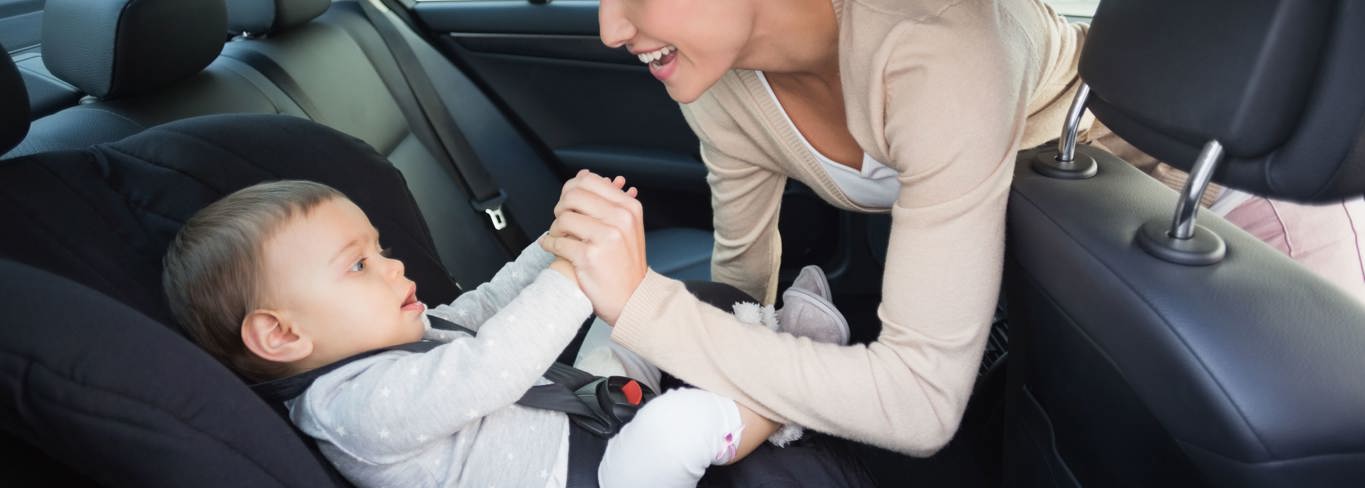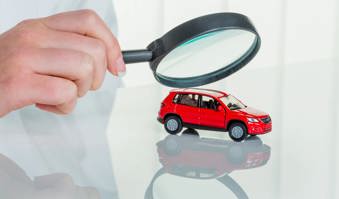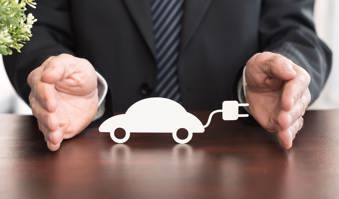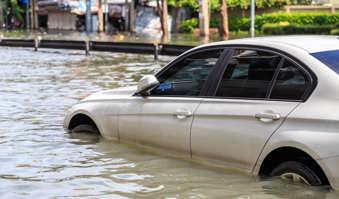Safeguarding Little Passengers: A Guide to Child Car Safety in the UAE
 31 Oct, 2023
31 Oct, 2023
Unlock the keys to child car safety in the UAE with our comprehensive guide—learn why car seats are crucial and follow these tips to ensure safe rides for your little ones.
Ensuring your child's safety on the road is a top priority for any parent. In the bustling streets of the UAE, where traffic can be challenging, it's vital to be well-informed about child car safety.
This blog delves into why car seat safety is vital and provides essential child car safety guidelines and tips to keep your little ones secure during every journey.
Quick Read Section
- Car seat safety is imperative as motor vehicle accidents pose a significant risk to children, and the right car seat dramatically reduces these dangers by creating a protective environment.
- Positioning the car seat correctly is crucial for optimal protection.
- Regular safety checks, compliance with UAE regulations, and comprehensive car insurance coverage, including consultation with insurance brokers, are essential for child safety during car journeys.
Why Is Car Seat Safety Important?
Child car seat safety is not just a recommendation; it's a lifesaver. Motor vehicle accidents are one of the leading causes of injury and death among children, and the proper use of car seats significantly reduces these risks. The right car seat can protect a child from serious injuries, providing a cocoon of safety during unexpected events on the road.
Child Car Seat Requirements in the UAE
The UAE has specific regulations regarding child car seats to ensure the safety of young passengers. Children under four years old must be secured in a child safety seat, and failing to do so will cause a hefty fine of AED 400 and 4 black points for the driver. Children under ten should be seated in the back and any passenger seated in the front seat must be more than 10 years old and have a height of 145 cm. Ensure that car passengers seated in the front and rear of the car wear seat belts to avoid an additional fine of AED 400. Always check for updates on regulations, as they may change over time.
The safety of your child in a moving vehicle cannot be overstated. Car accidents are unpredictable, and the use of proper car seats has proven to be a lifesaver. Investing in a high-quality car seat is an investment in your child's well-being, offering protection during unexpected events on the road.
Child Car Safety Guidelines
Follow these tips to ensure the safety of your child during every ride:
- Choose the Right Car Seat:
Selecting an appropriate car seat for your child's age, weight, and height is crucial. The UAE follows international safety standards, and car seats are categorized into rear-facing, forward-facing, and booster seats. Ensure that you choose the correct type for your child's stage of development. Installing the car seat correctly is as important as choosing the right one. Refer to both the car seat manual and the vehicle's manual to ensure a secure fit. Seek professional help if needed for car seat installation.
- Ensure Proper Positioning of the Car Seat:
Pediatricians recommend keeping children in rear-facing car seats for as long as possible. This position offers better protection for a child's head, neck, and spine during a collision. Rear-facing seats are recommended for infants and front-facing for older children. The seat belts should fit snugly across the shoulder and chest without crossing the neck or abdomen. The back seat is generally considered the safest place for a child safety seat. Airbags in the front can pose a risk to smaller children, so keep them in the back seat until they outgrow the recommended height and weight.
- Be Weather Prepared:
In the UAE's scorching heat, car interiors can become dangerously hot. It is advisable to use sunshades and ensure car seats and buckles aren't too hot before securing your child.
- Regular Safety Checks:
It is important for parents to routinely inspect their car seats and ensure they meet safety standards. Before hitting the road, take a moment to double-check the seat belts. Emphasize the importance of wearing seat belts to your children and ensure that the belts are securely fastened. Demonstrate the correct way to wear a seat belt and keep a watchful eye to prevent any incorrect adjustments, such as tucking seat belts under their arms or behind their back. Additionally, the safety protocols followed must be communicated with caregivers and relatives as well, to ensure they understand and practice the same while transporting children.
- Avoid leaving children unattended
Leaving children alone in a car poses significant risks. Within moments, they could potentially strangle themselves with seat belts, suffer from heatstroke, or accidentally manipulate vehicle controls, putting themselves and others in danger. To prioritize safety, always have your child by your side when exiting the car.
- Enable child safety locks
Activate the child safety locks to prevent any unintentional harm to your younger passengers. Failing to do so may result in children accidentally triggering power windows, posing a risk of injury if they extend their head or limbs out of the car.
- Get Comprehensive Car Insurance Coverage:
Car insurance is not only about protecting your vehicle but also safeguarding the passengers, especially children. Choose a comprehensive policy that covers potential medical expenses in case of an accident.
- Consult Insurance Brokers:
Insurance brokers play a pivotal role in helping you navigate the complex landscape of insurance options. They can assess your specific needs, guide you to the most suitable coverage, and ensure that your policy aligns with UAE regulations.
- Stay Informed about UAE Regulations:
The UAE has specific regulations regarding child car seats and insurance requirements. Stay updated on these regulations to ensure compliance and, more importantly, the safety of your child.
Car Insurance and the Role of Insurance Brokers
Car insurance plays a vital role in providing financial protection in the event of an accident. However, it's crucial to choose a policy that covers not only the vehicle but also the passengers, especially children. Insurance brokers in the UAE can assist in finding the most suitable coverage for your family, ensuring that your policy includes comprehensive protection for child passengers.
Car insurance is not just about protecting your vehicle; it's about safeguarding your passengers. Opt for a comprehensive policy that covers potential medical expenses in the event of an accident. Gargash Insurance is a trusted partner in ensuring your family's safety on the road. Explore their range of insurance solutions tailored to meet your specific needs, providing peace of mind and financial protection. Insurance brokers play a crucial role in helping you navigate the intricacies of insurance options. With their expertise, they can guide you to the most suitable coverage, ensuring compliance with UAE regulations and addressing your unique requirements.
Conclusion:
Prioritizing child car safety is an ongoing commitment that pays off in peace of mind and the well-being of your little ones. By adhering to these essential tips and staying informed, you can navigate the roads of the UAE with confidence, knowing your child is secure. Child car safety is a shared responsibility, and every parent must prioritize it for the well-being of their children. By understanding the importance of car seat safety, following guidelines, and staying informed about UAE regulations, parents can create a secure environment for their little ones during journeys. Remember, investing in child car safety is an investment in the future. Drive safely, buckle up, and embrace the peace of mind that comes with child car safety.
Contact us today for all your car insurance needs!

 Buy Now
Buy Now Online Plans
Online Plans




HAVE A QUERY?